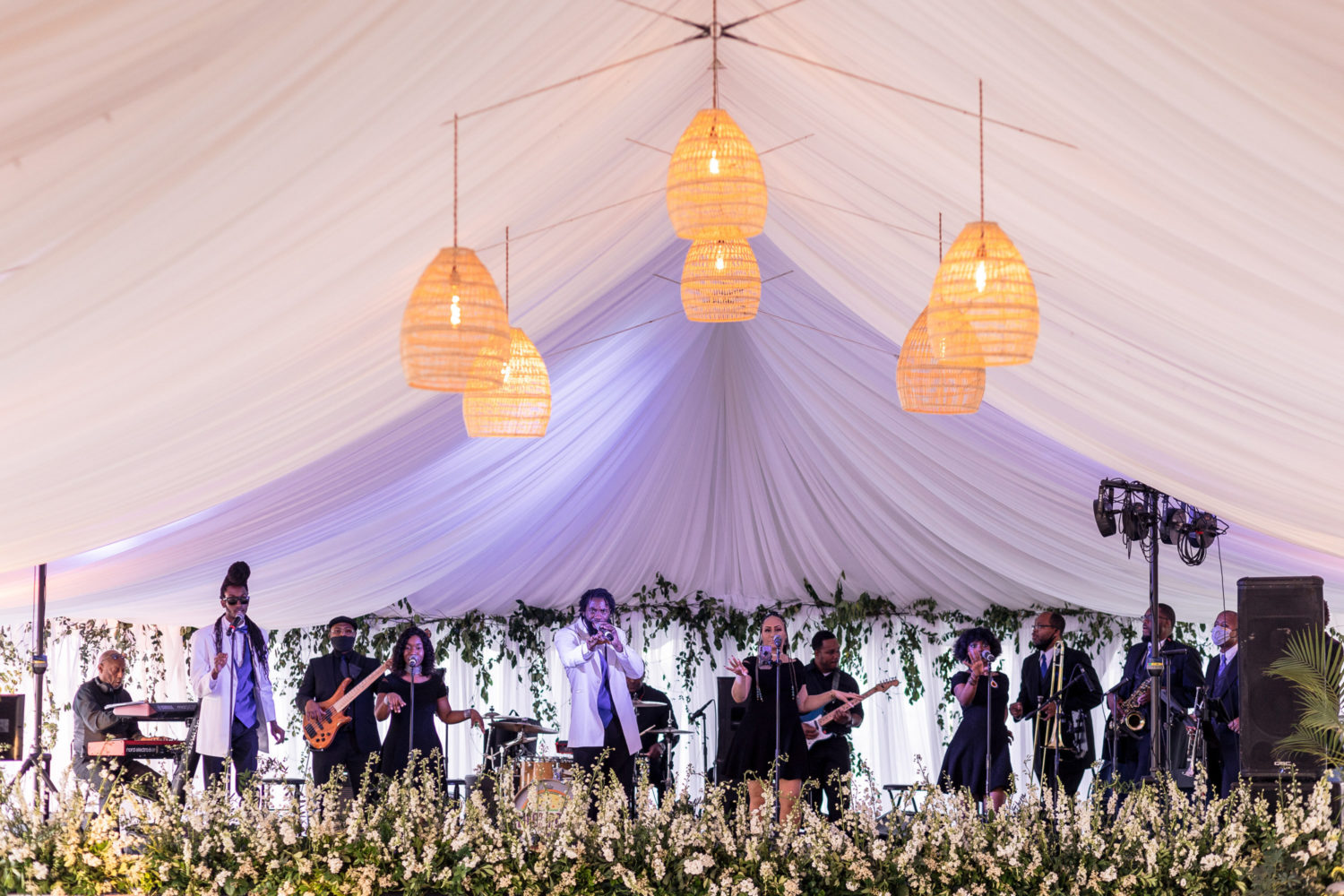Denise Kersten Wills (d.kersten@verizon.net) wrote about planning her wedding in the January issue.
Her June wedding on the horizon, Hillary Wicai spent President’s Day in February rushing around doing bridal errands. Her last appointment, a dress fitting, was a nightmare. The expensive gown she’d ordered five months earlier was poorly made and came in four sizes too small.
Wicai, a reporter for American Public Media’s Marketplace, went home tired and angry. Her mood gave her fiancé, Steven Viers, a chance to test what they had learned the previous weekend in their “marriage education” seminar called PAIRS, short for Practical Application of Intimate Relationship Skills.
Steven, a software engineer, listened to Hillary without interrupting. He summarized what she said to make sure he understood. He told her he could see why she was frustrated and that her feelings were justified. He didn’t change the subject, offer “helpful” suggestions, or tell her not to get upset.
The strategy, called mirroring, worked. “It defused the situation,” says Wicai, 38. “It was so clear he was on my side.”
Research shows that arming a couple with communication strategies can reduce the odds of divorce by as much as 30 percent, says Greg Kuhlman, who runs one-day Marriage Success Training seminars in DC and other cities with his wife, Patricia Schell Kuhlman. That’s why courses like PAIRS are gaining popularity.
Most classes are open to couples who’ve been married for years, including those on the brink of divorce.
Experts recommend learning relationship skills before bad habits develop, ideally during the engagement or shortly after the wedding. The long-term couples in Hillary and Steven’s course echoed that sentiment. “We were told over and over again, ‘You guys are so smart for doing this now,’ ” Wicai says.
Unlike therapy, in which a specialist tries to diagnose and treat relationship problems, marriage education aims to teach couples to work through conflicts on their own. Therapy involves dissecting emotional issues, a prospect that is off-putting to some people. In marriage seminars, you listen to the presenters and practice techniques with your partner.
“The main thing we learned was to take the other person’s perspective into account,” says Travis Powers, who took a course called Relationship Enhancement with his girlfriend of six years, Julie Hanko. Powers, a construction manager, and Hanko, a teacher, had broken off their engagement but were still seeing each other when they attended a weekend seminar. “We kept having the same conversations,” says Hanko. “We called them ‘vicious cycles.’ ”
The seminar didn’t cure all their problems—Powers and Hanko are still deciding whether to marry. But it helped them identify the issues at the root of their arguments and taught them to take a break when things get heated.
“We still have our ups and downs, but we had so many more downs before,” Hanko says. “Having those tools has taken the edge off our relationship.”
Marriage education grew out of couples studies beginning in the 1960s. One finding: People had assumed that irreconcilable differences cause divorce, but researchers discovered that even happily married couples have an average of five to ten permanent disagreements. Some couples remain in love for decades without agreeing on how much money to save and spend, how to divide household chores, or where to spend holidays. What sets them apart is how they deal with differences.
“That’s something you can master,” says Diane Sollee, founder of the Coalition for Marriage, Family and Couples Education (smartmarriages.com), a DC-based clearinghouse for marriage education.
The idea that you can teach couples how to live with conflicts seems counterintuitive. “I was pretty skeptical about whether one weekend could cure the communication problems we were having,” says John, a 34-year-old attorney from Potomac who prefers to keep his name private. He and his wife have been happily married for four years but couldn’t compromise on issues like what kind of car to buy. He wanted a sports car; she wanted something more practical.
The PAIRS weekend, he says, helped them stop trying to win arguments and instead focus on finding solutions that make them both happy. Soon after the weekend, they bought a small SUV, ending a six-month argument.
For more information on marriage education, visit the directory of programs on SmartMarriages.com. Most one-day or weekend workshops cost $75 to $450 a couple. Many couples take one seminar, but some sign up for longer courses such as a 120-hour PAIRS Mastery program.
The seminars have similar content but different teaching styles. In Marriage Success Training (stayhitched.com), a one-day course near Dupont Circle for engaged couples and newlyweds, the Kuhlmans present research on marriage and tips on how to maintain a positive tone and keep arguments within bounds.
PAIRS (pairs.com) courses, offered in Alexandria and Reston, explore how personal histories shape communication styles and teach ways to communicate. A dialogue guide provides prompts to help one partner explain his or her feelings by going through a range of emotions from “I notice . . .” to “I am hurt by . . .” to “I hope . . . .”
Prevention and Relationship Enhancement Program, or PREP (prepinc.com), is popular with men and is offered to military couples. The course teaches the rules of relationships—make an appointment to talk about an issue, for instance, and understand your partner’s position before you suggest a solution. One-day courses are taught in Lynchburg, Virginia, about three hours from DC. The founders also offer Love Your Relationship retreats (loveyourrelationship.com) at vacation destinations.
Relationship Enhancement (nire.org) focuses on building empathy and learning to express yourself without making your partner defensive. “It’s not that you’re a crummy driver,” says Robert Scuka of the National Institute of Relationship Enhancement in Bethesda, where weekend workshops are held, “it’s that I get upset when you drive that way.”
In Couple Communication courses (couplecommunication.com)—taught in Columbia and Chantilly—couples move around on floor mats that correspond to elements of a discussion. They stand in one place when describing feelings; another when asking for information. “It looks like you’re learning to do the tango,” says Diane Sollee. “You really do learn to talk in a different way.”
Marriage Savers (marriagesavers.org), a Christian program that pairs engaged couples with mentors, incorporates elements of PAIRS and PREP.


















